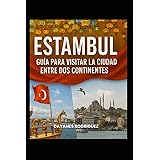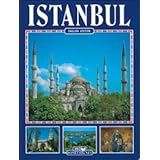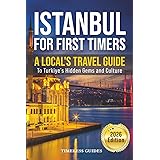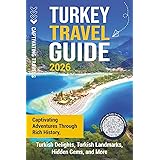In their own interests the 19th and 20th centuries, Central Asia , the Middle East created the concept Despite the western Atlantic powers, the ancient thousands of years that until the old-time reality Mediterrane (Mediterranean) and Zhongguo (China), the meaning of those so-called Middle Earth ‘is.
The Center of the World, the rare island of the Mediterranean, Cyprus, with its location holding the center of the Cradle of Civilizations, has a global potential as a treasure of ideas of the Basin.
The comparative advantage of Cyprus is its location and opportunity as an island of ideas, a paradise for contemplation, and a center for the production of high-value ideas.
It is extremely important that European philosophy from the continents surrounding the Mediterranean cannot be grasped without the developmental process that took place elsewhere and passed to Europe. The beginnings of the development of Western philosophy lie in the region that the Hellenes called the Orient (Anatole). The first center here was Miletos. Thales, Anaximandros and Anaximenes became the first philosophers of the history of philosophy with their intellectual activity and the problems they addressed.
The second and main center was in Europe: Athens. However, the third center right after that, Alexandria (Alexandria), is again outside the borders of Europe in Egypt, and the next one, Baghdad, is a little deeper in the Orient. Source: Elmar Holenstein, Atlas of Philosophy, Spaces and Ways of Thinking, June 2015, Istanbul, Küre Publications
Cyprus, located in the middle of the Miletus-Alexandria-Baghdad triangle; It is in a position to reproduce the Minor Asia-Greater Asia-Africa intellectual heritage.
Cyprus has started to accumulate an important intellectual infrastructure for years by providing education to the students of the countries in the triangle in question at the universities on the island. Starting from the coming years, targeting the world’s first place in intellectual activities of this accumulation should be put on the agenda.
Our knowledge shows that the mental conditions for philosophizing began in Africa. The most important contribution of the African continent to philosophy is the ability to speak. Having the ability to speak means that a person has the cognitive ability to not only understand but also reveal every philosophy that has developed since the Axial Age 2500 years ago. Early humans, who spread from Africa to the whole world between 50,000 and 100,000 years ago, carried this ability with them. Source: Elmar Holenstein, Atlas of Philosophy, Spaces and Ways of Thinking, June 2015
Cyprus, where Time and Grounds intersect, will bring out a universal Mind from the treasure of these intersections and will make it available to all humanity.
Despite the European Hegenomy, which only achieved dominance for 500 years by using external resources that did not belong to it; Mathematics and rationality of Asia Minor, symbolized by Miletus; Diophantus mathematics symbolized by Alexandria, Pythagorean wisdom (sophia) and Harezmi mathematics symbolized by Baghdad, wisdom of Beytül Hikme; In the Center of the World, Cyprus, the Afrasia Millennium, which has emerged from its own resources since the beginning of the 21st century, is preparing to take its place in history as the 3rd Millennium. The richness of thought of Ancient Egypt, Mesopotamia and Transoxiana is being reshaped on the island of Cyprus.
All innovations (paper, printing press, gunpowder, compass) to Europe were carried from Greater Asia by the Silk Road and the Iron Silk Road, which will be operational from 2035, will connect the New Mediterranean (Pacific Ocean) with the Cyprus-based Mediterranean. While Asia Minor Turkey was woven with iron nets in 1935s, a century later, 2035s will be the beginning of a new era, the Silk Road Age, in which Greater Asia will connect the oceans with railways.
In the early ages, the ancient Greek civilization emerged from the Mediterranean Civilization, which was common among the nations living on the Mediterranean coast, which was formed with the help of the Egyptians, Sumerians, Hittites, Assyrians and Phoenicians, and the ancient Roman civilization from the Greek civilization. After it was divided into two as Eastern Rome and Western Rome, the Europeans, who were the heirs of Western Rome, adopted this civilization and advanced it. Source: Ziya Gökalp, Principles of Turkism, Ministry of National Education Press, 1st Edition. Istanbul 1976, p. 48. 132 Ibid. NS. 136
Eastern Rome, on the other hand, was continued as the Seljuk and then the Ottoman Empires by the Turks, who stretched from Far Asia to Asia Minor, with the victories of 1071 and 1453. Thus, the Mediterranean Civilization, as a unique civilization with many components, has thousands of years of history and dynamic interactions.
Skopje (Macedonia), where Turkish culture is extremely strong as in Cyprus, is the birthplace of Yahya Kemal Beyatlı, one of the greatest poets and intellectuals of Turkish poetry. Yahya Kemal, who sees his geography within the Mediterranean civilization basin, strives to reach the universal, especially through this thesis. He realistically determined the borders (misak-ı milli) and then the milestone (1071 and 1453) of the homeland, from which he claimed to have been created as an indivisible whole by the religion and the nation, and included it in the European civilization through the Mediterranean basin with a final effort. Of course, while establishing this synthesis, he takes care not to overlap with any doctrine, theory, and not to construct theories that will impose responsibility on himself.“The homeland is never a theory, it is a land. Soil is the tomb of the ancestors. It is where mosques are built. Industry is the exhibition of what has been done in the name of nafise (Fine Arts).” Source: Kadrican Mendi, Yahya Kemal’s Politics
“The reflection of Yahya Kemal; It is on the line of Vienna, Budin, Belgrade, Istanbul, Baghdad, Basra. Yahya Kemal Bey’s reflective side is also important; It has prose style writings.” Source: Ömer Tuğrul İnanç






















